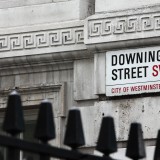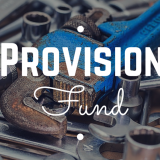On the 8th of July, Chancellor George Osborne unveiled the first UK Conservative budget since 1996. The emergency budget is designed to help the Government save and spend the country’s money over the next 12 years.
The Government plans will affect everyone either directly or indirectly, including those who are investing in property.
Property Moose investigates the top 10 ways we believe the UK Budget 2015 will affect the UK property market.
1. Help to Buy ISA
There are a number of government help-to-buy schemes designed to provide financial assistance to those trying to get a foot on the property ladder, such as Help-to-Buy, Right-to-Buy and Shared Ownership. A new Help-to-Buy ISA will be introduced this year, which will reward first time buyers, with a £50 cash bonus for every £200 saved towards a deposit.
Some people have voiced their concerns about this new scheme, as even those who could afford to save a deposit without any financial assistance from the Government will still be eligible to receive the bonus. (1) The Treasury estimate that around 285,000 first time buyers will use this scheme every year. (2)
In addition, those who have saved a sufficient deposit already, might be encouraged to keep on saving, rather than buy a property straight away, as they will receive more financial contributions the longer they save. This could mean less people are willing to buy a property over the next 5 years. (2)
2. National Living Wage
Iain Duncan Smith roared with delight as George Osborne announced that the national living wage would be increased to £9 an hour by 2020. (3)
From as early as April 2016, the national living wage will rise to £7.20 an hour for those over the age of 25. The increase is estimated to give 6 million workers a pay rise, however a significant number of people could lose their jobs as a result, according to the Office of Budget Responsibility. (4)
Depending on your personal circumstance, you may find you have more money leftover at the end of the month or less. Some people may wish to save any additional money, they might put it towards a deposit or spend it on a more luxurious rental property.
3. Tax-Free Personal Allowance
Tax-free personal allowance will be increased from £10,600 to £11,000 next year.
Those who earn up to £43,000 a year will not have to pay a higher tax rate from April 2016. The threshold will rise for the first time in five year, lifting 130,000 people out of the 40% tax bracket. (5)
These increases will mean that the majority of high rate taxpayers will benefit. By 2018, those earning an annual salary of approximately £40,000 will find themselves in a better position financially than they are today. (5)
4. Inheritance Tax
At the moment, Inheritance Tax is charged at 40% on estates over £325,000 per person. Also, married couple and civil partners are allowed to pass on any unused allowance on to one another. (6)
The Budget 2015 will allow each individual a family home allowance, so that people are able to pass on their home to their children or grandchildren tax-free after their death. This allowance will be introduced in April 2017. (6)
The additional allowance will be added onto the existing £325,000 Inheritance Tax allowance, resulting in a tax-free allowance for a surviving spouse or civil partner up to £1 million by 2020. (6)
Those who are landlords will benefit from being able to pass on their family home to their children along with a £325,000 tax-free asset allowance.
5. Landlord Tax Relief
Not everyone will benefit from the Budget. Landlords will not be allowed to deduct 10% off their rental income to cover general maintenance on furnished properties.
At the moment, landlords who rent out furnished properties are able to deduct 10% tax free, no questions asked, to cover wear and tear (7) and the cost of replacing old and damaged furnishings. However from April next year, landlords must provide details of the cost of replacing such furnishing. This means that Landlords who may have claimed the 10% tax relief in order to charge a cheaper rent, rather than replace furniture annually will not be able to continue to offer this. This could result in landlords increasing rent in order to provide high quality properties or landlords might opt out of providing furnished properties all together. (7)
Moreover, from April 2017, landlords will not be able to reclaim tax at their highest marginal rate of up to 45%. This rate will be cut down over a four-year period to only 20%, the basic rate of income tax. (7)
The cuts to landlords could result in a flood of buy-to-let properties being put on the market.
6. Permanent non-dom status
Non-dom individuals are people who live in the UK but consider their permanent home to be elsewhere. As long as these individuals don’t bring their offshore income into the UK, they are not required to pay UK tax on it whatsoever.
However, in April 2017, the permanent non-dom status will be cut for anyone who has been a resident in the UK for 15 of the past 20 years, and will be required to pay tax. (8)
The abolishment of this tax loophole could deter a number of UK resident billionaires such as the newspaper proprietor, Viscount Rothermere, or Russian oligarch, Roman Abramovich, from staying in the UK. (9)
7. £30 million investment into Northern Transport
The Government will invest £30 million into revolutionising transport in the North of England. (8)
The funding will be introduced over a 3 years period and will include a new ‘TransNorth’ rail system as well as new road investment in order to slash journey times between major cities.
This should dramatically improve the interest in the North for property investors, international investors and major corporations.
Chancellor George Osborne said, ‘Connecting up the great cities of the north is at the heart of our plan to build a northern powerhouse. This report has the potential to revolutionise transport in the north and we will work closely with TfN to help make it a reality.’ (10)
Property prices for both commercial and residential properties may rise as a result.
8. 30 Hours of free childcare
The Budget 2015 has also promised 30 hours of free childcare for working families with 3 and 4 year olds, which is double the amount of hours currently offered. This plan will help encourage more parents to return to work and be able to afford to work and benefit from their salary rather than spend the majority of it on childcare. (8)
Prime Minster David Cameron is committed to providing support to households to ensure that those who can work do work, without childcare being an issue.
This will mean that more parents will return to work and so be able to have more spending power overall. (11)
9. Student Maintenance Grants
From the 2016/2017 academic year, students will no longer receive the student maintenance grant. This will be replaced with a student maintenance loan, which will be paid back only when graduates earn above £21,000 a year.
However, financial support for new students will increase by £766 to £8,200 a year, the highest level ever for students from low-income households. (8)
Despite the increase in financial assistance, we could see a number of students opting to live at home rather than in student accommodation in order to save money.
10. 3 Million New Apprenticeships
In a bid to get more young people either working or in full time education, the Government plan to create 3 million new apprenticeships by 2020, funded by a levy on large employers. Those companies, who take on apprenticeships and train them, will be able to get back more than they put in. (8)
Students who may be considering applying for university might see apprenticeships as a quicker and cheaper way of starting their career. Moreover, with maintenance grants being cut for all UK students, graduates could face up to £51,000 of debt, once they leave university. Those who take up apprenticeships will not have anywhere near as much debt to pay off. (12)
Conclusion
The Budget 2015 has set out a number of plans that could dramatically impact the UK property market both directly and indirectly. At the moment it is unclear whether the overall budget will have positive or negative implications. If you are planning to invest in property, it is vital to consider all factors, which may come into play in the next couple of years.
Disclaimer and Legals
Property Moose does not provide any advice in relation to investments and you must rely on your own due diligence before investing. Please remember that property prices can go down as well as up and that all figures, rates and yields are projections only and should not be relied on. If in doubt, please seek the advice of a financial adviser. Your Capital is at risk if you invest. This post has been approved as a financial promotion by Resolution Compliance Limited.
Property Moose is a trading name of Crowd Fin Limited which is an Appointed Representative of Resolution Compliance Limited which is authorised and regulated by the Financial Conduct Authority (no: 574048).
Sources
- http://www.telegraph.co.uk/finance/budget/11481174/New-Help-to-Buy-Isas-for-first-time-buyers-unveiled-in-Budget.html
- http://www.telegraph.co.uk/finance/property/house-prices/11484129/Budget-2015-Help-to-buy-ISA-could-distort-housing-market.html
- http://www.theguardian.com/politics/2015/jul/08/fist-pumping-iain-duncan-smith-george-osborne-living-wage-budget
- http://www.bbc.co.uk/news/business-33463231
- http://www.thisismoney.co.uk/money/news/article-3157429/BUDGET-2015-Winners-losers-George-Osborne-s-big-reforms-inheritance-tax-minimum-wage-pensions.html
- http://www.telegraph.co.uk/finance/personalfinance/how-budget-affect-me/11722864/Budget-2015-How-inheritance-tax-changes-might-affect-you.html
- http://www.theguardian.com/uk-news/2015/jul/08/osborne-buy-to-let-tax-relief-limit-budget
- https://www.gov.uk/government/news/summer-budget-2015-key-announcements
- http://www.theguardian.com/uk-news/2015/jul/08/non-dom-tax-status-abolished-individuals-born-uk-budget-george-osborne
- https://www.gov.uk/government/news/revolutionary-plans-for-northern-transport-set-out
- https://www.gov.uk/government/uploads/system/uploads/attachment_data/file/384090/uc-increasing-the-childcare-offer.pdf
- http://www.theguardian.com/society/2015/jul/10/budget-2015-how-young-people-lose-out






